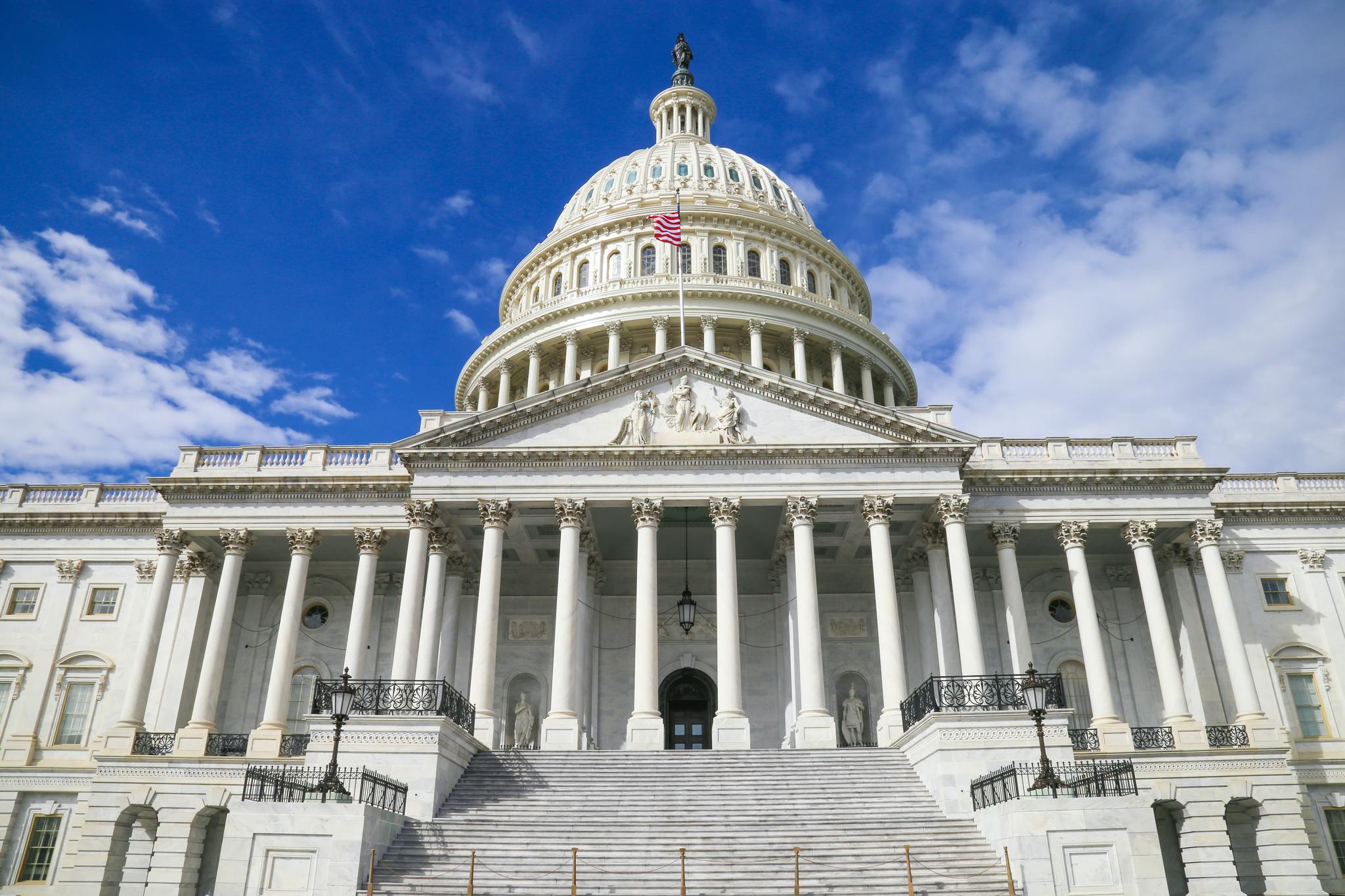House Democrats say tech companies have monopoly that needs broken up

What you need to know
- A Democratic congressional staff report is making the rounds.
- The 450-page report details the House Antitrust Committee's findings on its investigation.
- The report recommends sweeping changes that could impact Apple, Google, Facebook, and Amazon.
Update, October 6, 2020 (8:25 pm ET): Apple has responded, saying that it "vehemently disagrees" with the report and that developers are the "primary beneficiaries" of the App Store.
Update, October 7, 2020 (12:00 pm ET): Google has released a statement on the report.
Reported by CNBC, a Democratic congressional staff report, after its 16-month antitrust investigation which included the testimonies of some of the biggest CEOs in the technology industry, is recommending major changes to antitrust laws that could have major impacts to companies like Apple, Amazon, Facebook, and Google.
According to the report, the staff found that each of the four businesses currently has "monopoly power" that needs to be brought under control by Congress and other government agencies.
CNBC has outlined the major recommendations contained in the 450-page report, which include the potential breakup of some of the company's businesses. For example, Google could have to break YouTube out into its own company.
- Imposing structural separations and prohibiting dominant platforms from entering adjacent lines of business. This means that the Democratic staff recommends solutions including forcing tech companies to be broken up or imposing business structures that make different lines of business functionally separate from the parent company. For example, this could include a scenario like forcing Google to divest and separate from YouTube, or for Facebook to do the same with Instagram and WhatsApp. Subcommittee Chairman David Cicilline, D-R.I. has previously referred to this method as a type of "Glass-Steagall" law for the internet, referring to the 1930s era law that separated commercial from investment banking.
- Instructing antitrust agencies to presume mergers by dominant platforms to be anticompetitive, shifting the burden onto the merging parties to prove their deal would not harm competition, rather than making enforcers prove it would. Preventing dominant platforms from preferencing their own services, instead making them offer "equal terms for equal products and services."
- Requiring dominant firms to make their services compatible with competitors and allow users to transfer their data.
- Overriding "problematic precedents" in antitrust case law.
- Requiring the Federal Trade Commission to regularly collect data on concentration.
- Increase budgets for the FTC and Department of Justice Antitrust Division.
- Strengthen private enforcement by eliminating forced arbitration clauses and limits on class action lawsuits.
The committee has specifically pointed out Apple's control over the distribution of apps on iOS, a point that is sure to cause eyes to gaze over at its current legal battle with Epic Games, which seems to be heading to the court in 2021. The report also points out Amazon's control over its marketplace, Facebook's control over its advertising, and Google's dominance in online search.
The Democratic report found that the four tech companies enjoy monopoly power in the following areas:
Be an expert in 5 minutes
Get the latest news from Android Central, your trusted companion in the world of Android
- Apple: distribution of software apps on iOS devices.
- Amazon: most third-party sellers and many suppliers.
- Facebook: online advertising and social networking.
- Google: online search.
Apple, Google, and Facebook have not yet responded to request for comment on the report. A spokesperson for Amazon has responded to the news, saying that the findings are "flawed thinking."
"All large organizations attract the attention of regulators, and we welcome that scrutiny. But large companies are not dominant by definition, and the presumption that success can only be the result of anti-competitive behavior is simply wrong. And yet, despite overwhelming evidence to the contrary, those fallacies are at the core of this regulatory spit-balling on antitrust. This flawed thinking would have the primary effect of forcing millions of independent retailers out of online stores, thereby depriving these small businesses of one of the fastest and most profitable ways available to reach customers. For consumers, the result would be less choice and higher prices. Far from enhancing competition, these uninformed notions would instead reduce it."
You can read the full report here.
Update, October 6, 2020 (8:25 pm ET) —Apple has responded, saying that it "vehemently disagrees" with the report and that developers are the "primary beneficiaries" of the App Store.
"We have always said that scrutiny is reasonable and appropriate but we vehemently disagree with the conclusions reached in this staff report with respect to Apple. Our company does not have a dominant market share in any category where we do business. From its beginnings 12 years ago with just 500 apps, we've built the App Store to be a safe and trusted place for users to discover and download apps and a supportive way for developers to create and sell apps globally. Hosting close to two million apps today, the App Store has delivered on that promise and met the highest standards for privacy, security and quality. The App Store has enabled new markets, new services and new products that were unimaginable a dozen years ago, and developers have been primary beneficiaries of this ecosystem. Last year in the United States alone, the App Store facilitated $138 billion in commerce with over 85% of that amount accruing solely to third-party developers. Apple's commission rates are firmly in the mainstream of those charged by other app stores and gaming marketplaces. Competition drives innovation, and innovation has always defined us at Apple. We work tirelessly to deliver the best products to our customers, with safety and privacy at their core, and we will continue to do so."
Update, October 7, 2020 (12:00 pm ET) —Google has released a statement on the report.
Google's free products like Search, Maps and Gmail help millions of Americans and we've invested billions of dollars in research and development to build and improve them. We compete fairly in a fast-moving and highly competitive industry. We disagree with today's reports, which feature outdated and inaccurate allegations from commercial rivals about Search and other services.Americans simply don't want Congress to break Google's products or harm the free services they use every day. The goal of antitrust law is to protect consumers, not help commercial rivals. Many of the proposals bandied about in today's reports—whether breaking up companies or undercutting Section 230—would cause real harm to consumers, America's technology leadership and the U.S. economy—all for no clear gain.We support Congress focusing on areas where clearer laws would help consumers, a few of which are mentioned in today's reports: Google has long championed the importance of data portability and open mobile platforms; we are arguing a case before the Supreme Court tomorrow for the important principle of software interoperability; and we have urged Congress to pass comprehensive federal privacy legislation. We look forward to engaging with Congress on these and other issues moving forward.

